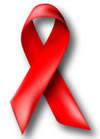
|
One in 10 male, same-sex Craigslist ads seek men who don't identify as gay
Small percentage of personal ads stress importance of safe sex
March 24, 2014 - Online sexual hook-ups present a unique opportunity to explore many factors of decision-making that inform sexual
health. A study conducted by Eric Schrimshaw, PhD, at Columbia University's Mailman School of Public Health and Martin J. Downing, Jr.,
PhD, of the National Development and Research Institutes, found evidence that men having sex with men use the Internet to find sexual
partners who do not identify as gay, either to fulfill a fantasy or because it allows anonymous sexual encounters without discovery.
The findings are online in the journal, Psychology of Sexual Orientation and Gender Diversity, published by the American
Psychological Association.
To examine the subgroup of men seeking non-gay-identified (NGI) men in the online sexual marketplace, the researchers
reviewed 1,200 Internet personal ads posted on Craigslist and selected 282 for analysis and performed comparisons of two categories
of personal ads: those seeking encounters with NGI men, including straight, bisexual, married, curious, and men on the "down low"
(those who usually identify as heterosexual but have sex with men); and a contrasting set of ads that did not specifically seek
NGI men. Craigslist was chosen because it is publicly accessible, highly trafficked, free-of-charge, and widely used by gay,
NGI men seeking men, or men who have sex with men and women to find sexual partners.
Among the ads studied, 11% were placed by men seeking NGI partners. Although men who posted NGI-seeking ads were more
likely to self-identify as bisexual, married, and/or discreet and to seek out an anonymous encounter relative to the ads of
comparison men, only 24% of online advertisements seeking NGI men were posted by men who were themselves non-gay-identified.
This suggests that many of the posts are placed by gay men seeking NGI men, perceived by some gay men to be more
masculine, dominant, or "straight-acting."
Only a small number of ads by NGI-seeking men mentioned safe sex or condom use. The analysis revealed that men seeking NGI
partners were significantly less likely to mention that they wanted to have safer sex/use condoms (15% vs. 33%) and were more likely
(66% vs. 42%) to omit mention of condoms or safer sex in their advertisements. "This suggests that these men are more likely to be
looking for and willing to engage in sex without a condom which may place them at greater risk for HIV/STI transmission than men
who are not seeking non-gay-identified male partners," said Dr. Schrimshaw, who is assistant professor of Sociomedical Sciences
at the Mailman School of Public Health.
Although few advertisements posted by men seeking NGI partners specifically sought anal sex without a condom (1% vs. 2%), they
were significantly more likely to seek oral sex without a condom (14% vs. 5%) than comparison advertisements. "Future research on
NGI-seeking men could lead to better understanding of their risk behaviors which, in turn, could be helpful for developing and
targeting HIV/STD prevention and intervention efforts," noted Dr. Schrimshaw.
"Men having sex with men with characteristics that are devalued in the sexual marketplace such as older, heavier, or
less masculine men will perhaps have less bargaining power, or at least perceive themselves as having less power, therefore, they
may be willing to place themselves at risk for HIV and other sexually transmitted diseases to obtain a sexual partner," said
Dr. Downing. These findings suggest that men may be even more willing to do this with NGI men.
The findings have unique implications for sexual health research targeting non-disclosing, NGI MSM and their same-sex
partners. The authors note that further investigation is warranted to determine the extent to which NGI-seeking men are successful
in finding partners for same-sex encounters who identify as straight or heterosexual, bisexual, down-low, or married as well as
the types of behaviors these men engage in and the level of sexual risk.
"Regardless of any study limitations, the research has allowed us to document the existence of a subgroup of men who
actively seek out sexual encounters with men who do not identify as gay," said Dr. Schrimshaw. "Moreover, the findings suggest that
men with a preference for NGI men attempt to alert such prospective partners through a combination of self-described
characteristics, desired partner attributes, and behavioral preferences, all of which serve to attract more discreet
and masculine men. Given the attention to the sexual behaviors of NGI MSM, the results of this study support the
need for additional research to investigate the behavioral outcomes of NGI-seeking men's personal ads."
###
Contact: Stephanie Berger
sb2247@columbia.edu
212-305-4372
Columbia University's Mailman School of Public Health
About Columbia University's Mailman School of Public Health
Founded in 1922, Columbia University's Mailman School of Public Health pursues an agenda of research, education, and
service to address the critical and complex public health issues affecting New Yorkers, the nation and the world. The Mailman School
is the third largest recipient of NIH grants among schools of public health. Its over 450 multi-disciplinary faculty members work
in more than 100 countries around the world, addressing such issues as preventing infectious and chronic diseases, environmental
health, maternal and child health, health policy, climate change & health, and public health preparedness. It is a leader
in public health education with over 1,300 graduate students from more than 40 nations pursuing a variety of master's and
doctoral degree programs. The Mailman School is also home to numerous world-renowned research centers including ICAP
(formerly the International Center for AIDS Care and Treatment Programs) and the Center for Infection and
Immunity. For more information, please visit http://www.mailman.columbia.edu
Source: http://www.eurekalert.org/pub_releases/2014-03/cums-oit032414.php
For more HIV and AIDS News visit...
Positively Positive - Living with HIV/AIDS:
HIV/AIDS News
|